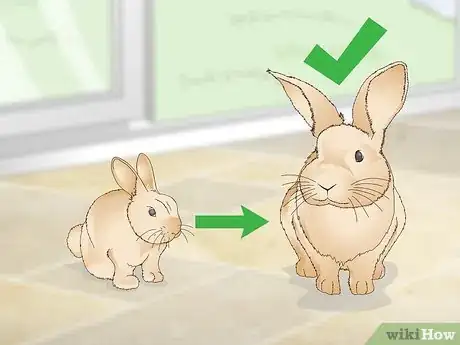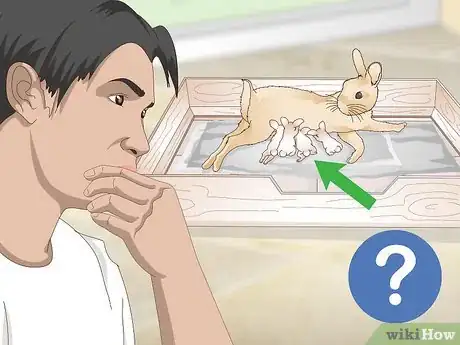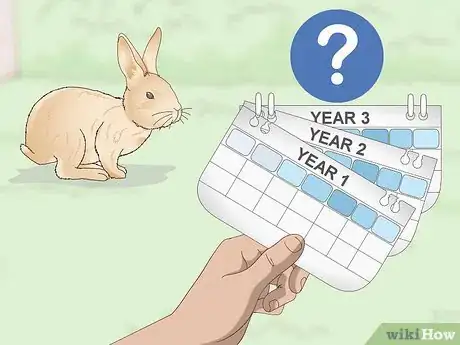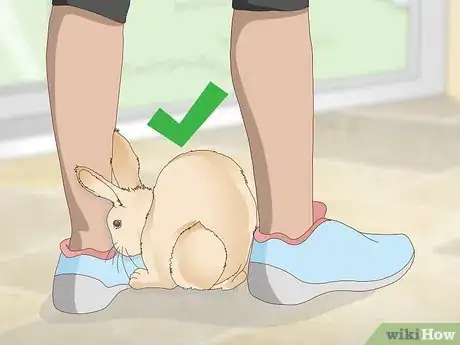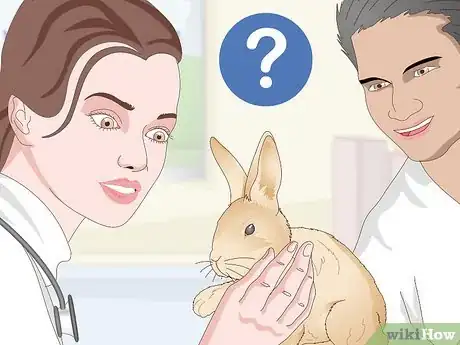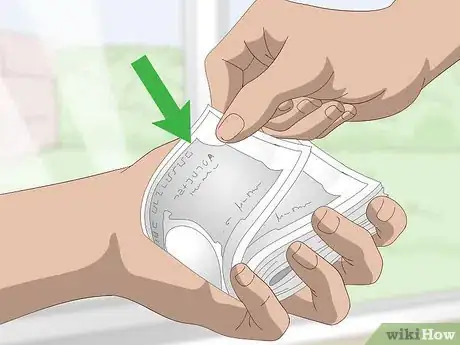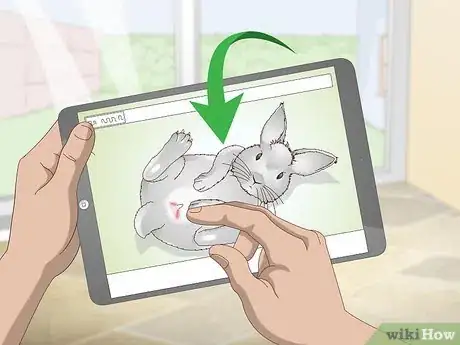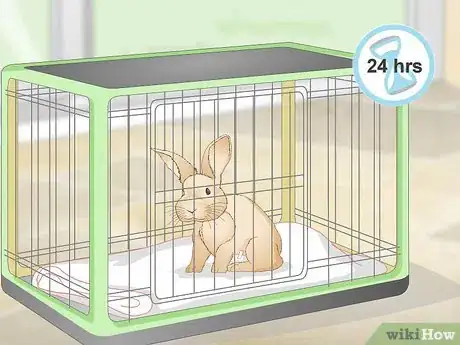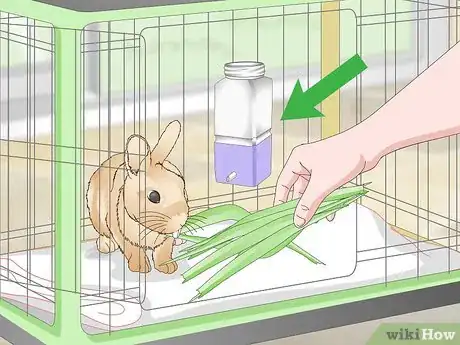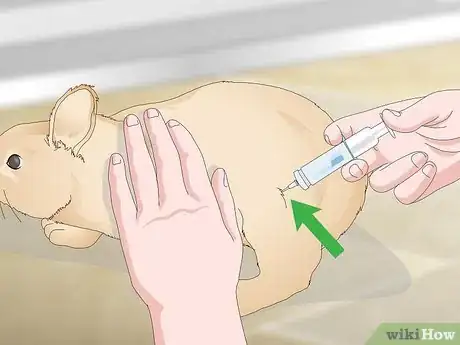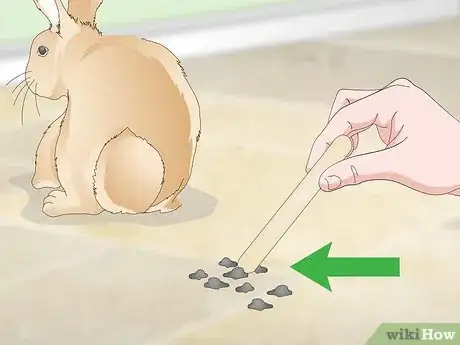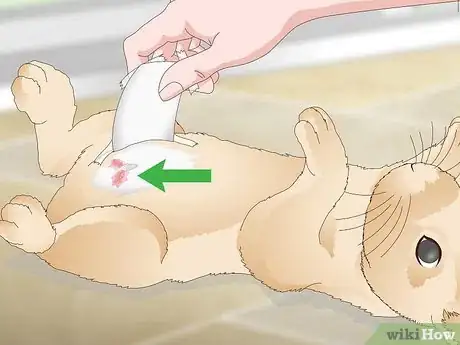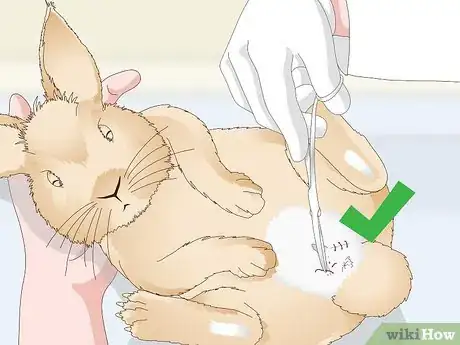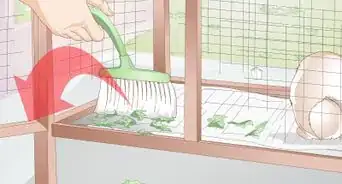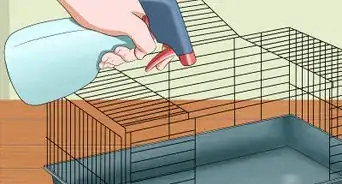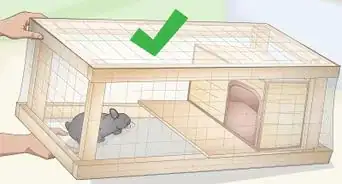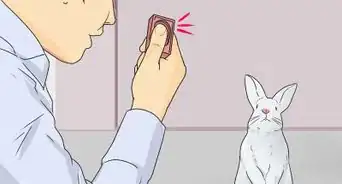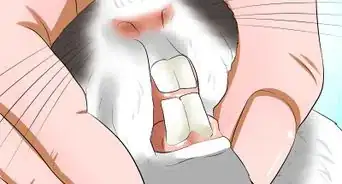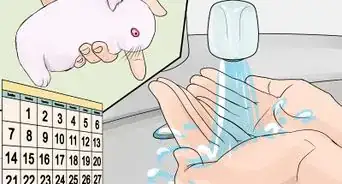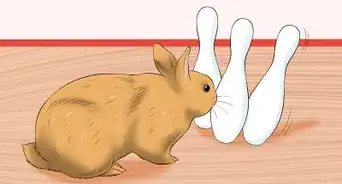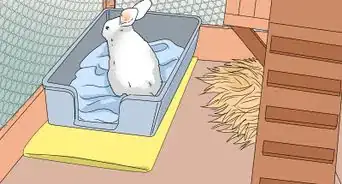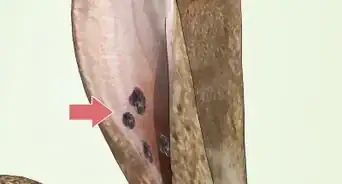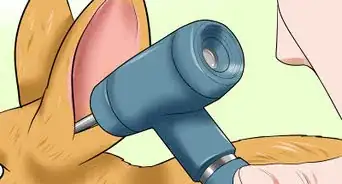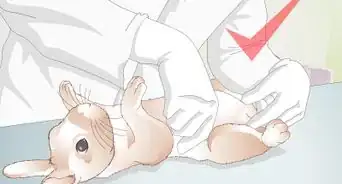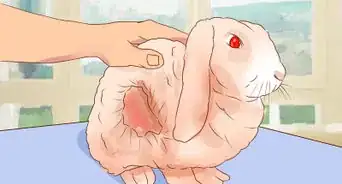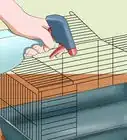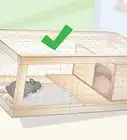This article was co-authored by Ryan Corrigan, LVT, VTS-EVN. Ryan Corrigan is a Licensed Veterinary Technician in California. She received her Bachelor of Science in Veterinary Technology from Purdue University in 2010. She is also a Member of the Academy of Equine Veterinary Nursing Technicians since 2011.
There are 10 references cited in this article, which can be found at the bottom of the page.
This article has been viewed 122,828 times.
Should you have your rabbit neutered? In almost all cases, the answer should be a resounding “yes.” Determining whether your rabbit should be neutered is a process that depends mostly on your rabbit’s age and health. The best way to determine whether neutering is right for your rabbit is to speak with your veterinarian.
Steps
Factoring the Rabbit’s Age and Lifestyle
-
1Wait until the rabbit is old enough to be neutered. It is fruitless to determine whether to have your rabbit neutered before you can actually do so. Make the decision only after your rabbit is at least three to five months old, the age after which it can be neutered.[1]
- Don’t wait until your rabbit is too old to be neutered. Most vets will not neuter a rabbit after it reaches six years of age.
- Additionally, rabbits over two years of age will need to be screened more thoroughly for health issues than rabbits that are younger, which could add cost to the pre-operation procedure.[2]
-
2Decide if you want to breed your rabbit. If you neuter your rabbit, it will not be able to produce baby rabbits. If breeding your rabbit with a female is important to you, do not have your rabbit neutered.[3]
- Remember that rabbit litters can be quite large. If you are not equipped to care for your baby rabbits, you might be obligated to give them to an animal shelter or pet store, where they could be euthanized or end up as snake food.[4]
Advertisement -
3Ask yourself how long you want your rabbit to live. If your rabbit is neutered, it is at a decreased risk of getting cancer and urinary tract infections. Ask yourself, “Do I want my rabbit to live a longer, healthier life?” If the answer is yes, move forward with the neutering procedure.[5]
-
4Identify what sort of personality you want in your rabbit. Compared to rabbits that have not been neutered, rabbits that have been are calmer and easier to bond with. They are also less likely to engage in conflicts with other household animals, and can be litter trained more easily. Ask yourself, “Do I want a rabbit that is calm, affectionate, and easy to train?” If the answer is yes, get your rabbit neutered.[6]
Evaluating the Procedure
-
1Consult your vet. The most important step in determining whether to have your rabbit neutered is obtaining your veterinarian’s opinion. If your vet warns against getting your rabbit neutered due to some health condition, you should take their advice seriously. Ask your vet questions about your pet and the neutering procedure, including:[7]
- Is neutering safe?
- Have your performed many neutering procedures? What is your success rate?
- Have any rabbits died due to the neutering procedure? Why?
- What sort of anesthetic will you use on my rabbit during the neutering procedure?
- What is the recovery like? How long will it take my rabbit to return to normal?
- Will my rabbit need antibiotics? How much do they cost?
-
2Take stock of your finances. Like any medical operation, neutering your rabbit costs money. Most neutering operations will cost around $250. If you don’t have the money, or believe that you cannot afford the expense right now, your final determination about whether to have your rabbit neutered should probably be in the negative.[8]
- Specialty clinics might be able to neuter your rabbit for as little as $50-$75. Ask your vet if they know of such a clinic in your area.
-
3Learn more about getting your rabbit neutered. The more you know about neutered rabbits and the process of neutering, the better off you will feel. When your rabbit is neutered, your vet will remove its testicles. Some vets choose to remove the testicles by making an incision in the scrotum, while others prefer to make an incision in the animal’s stomach. Your vet will let you know which is best for your rabbit.[9]
- Read more about the process of neutering to put your mind at ease. Your vet will probably provide you with pamphlets or internet resources you can use to better evaluate the procedure.
- Like all surgeries, neutering your rabbit carries some risk of infection or unforeseeable complications. Overall, however, there are few risks involved in getting your rabbit neutered. The average loss of life due to the neutering procedure or complications thereof is less than 0.5%.
Accepting Post-Op Care Responsibilities
-
1Keep your rabbit in its cage for at least 24 hours. This will limit the rabbit’s mobility and prevent it from loosening the sutures due to activity. To reduce its stress and speed the healing process, place your rabbit’s cage somewhere warm and quiet. You can keep your bunny warm by filling water bottles with hot water and laying them in its cage, or by placing warm towels on the bottom of the cage.
-
2Give your rabbit food and water. Your rabbit will probably be able to eat the same day as the surgery. Offer some of its favorite greens and a bit of Timothy hay or Orchard hay. If your rabbit has not eaten within 24-48 hours of the surgery, contact your veterinarian.[10]
-
3Administer pain medications as needed. Your vet should provide you with pain medication for your neutered rabbit. Listen carefully to the vet’s directions and administer the medicine at the prescribed intervals.
- Do not take your rabbit to a vet that will not provide pain medication.
-
4Monitor your pet’s stool. Rabbits might have soft or irregular stool for several days following the surgery. If it continues for more than a few days, however, alert your vet to the situation.[11]
-
5Check the operation site daily. If you see any swelling, redness, blood, or discharge at the site of your neutered rabbit’s incision, contact your vet. You should also contact your vet if you notice that your rabbit’s sutures are coming loose.[12]
-
6Take your rabbit back to the vet to get its sutures removed. The amount of time that passes between the operation and the removal of sutures varies. Generally, you will need to return to the vet after 10 to 14 days.[13]
References
- ↑ http://myhouserabbit.com/rabbit-health/spaying-or-neutering-your-pet-bunny/
- ↑ http://rabbit.org/faq-spaying-and-neutering/
- ↑ http://myhouserabbit.com/rabbit-health/spaying-or-neutering-your-pet-bunny/
- ↑ http://rabbit.org/faq-spaying-and-neutering/
- ↑ http://myhouserabbit.com/rabbit-health/spaying-or-neutering-your-pet-bunny/
- ↑ http://myhouserabbit.com/rabbit-health/spaying-or-neutering-your-pet-bunny/
- ↑ http://rabbit.org/faq-spaying-and-neutering/
- ↑ http://rabbit.org/faq-spaying-and-neutering/
- ↑ http://rabbit.org/faq-spaying-and-neutering/
About This Article
If you're not sure whether you should neuter your rabbit, keep in mind that rabbits that are neutered tend to live longer since they're less likely to get sick. Additionally, neutered rabbits are usually calmer and easier to bond with. However, if you want to breed your rabbit in the future, you probably shouldn't have it neutered. You can also ask your vet ahead of time if you have any questions about the pros and cons. For more tips from our Veterinary co-author, including how to look after your rabbit after the procedure, read on!
